Power Analysis: How Remco Evenepoel soloed to victory at the UCI Road World Championships
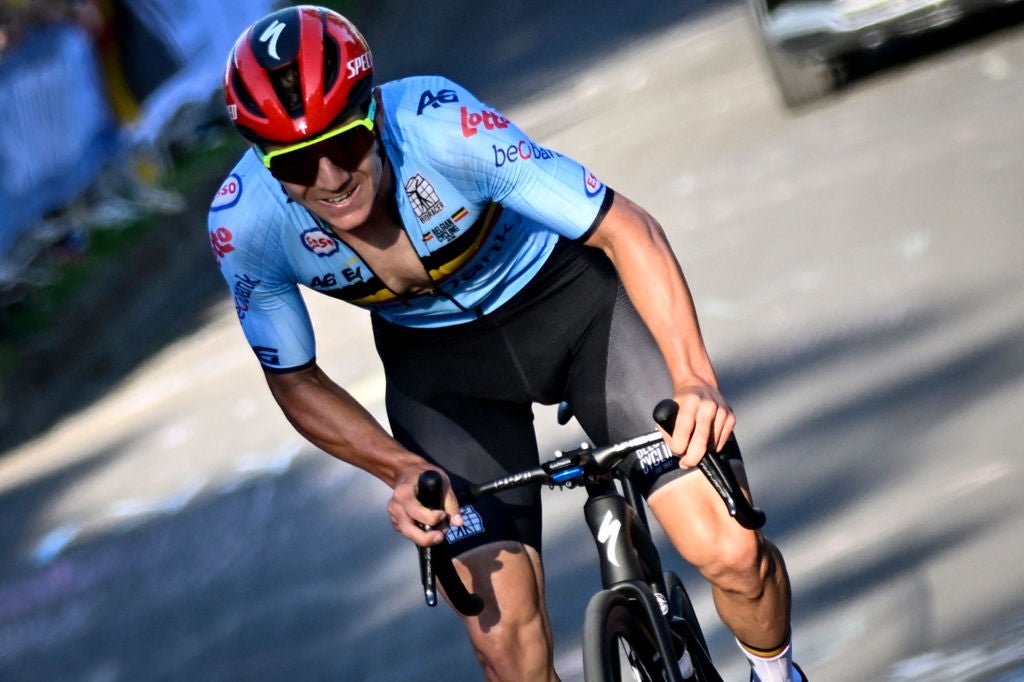
It seems as though Remco Evenepoel only knows one way to win a bike race: attack with 30–50km to go and solo to victory. Simple as that.
As big of a favorite as the Belgian was for the 2022 UCI Road World Championships in Wollongong, Australia, Evenepoel did what he does best, earning the rainbow stripes for the first time in the elite ranks. It was only four years ago that Evenepoel was the junior world champion, where he won by nearly a minute and a half in Innsbruck, Austria.
But this year’s worlds didn’t play out as many expected.
On the hilly course in Wollongong, most pundits predicted a reduced group sprint, or maybe an attack from the withered peloton. What few predicted was the onslaught of attacks that came with over 225km to go, splitting the field into pieces at the hands of the French.
Also read:
- Remco Evenepoel goes solo for sensational UCI Road World Championship victory
- Power Analysis: How Tobias Foss turned the tables for a time trial world championship title
Pavel Sivakov was one of those riders drilling the pace on the climb that the elite men would only tackle once: Mount Keira. Before the city circuit in Wollongong, the race traversed the Keira climb, a 7.5km ascent at 5.7%.
France made its intentions known on the steep section of the climb, with Sivakov pushing nearly 7w/kg with over five hours of racing to go.
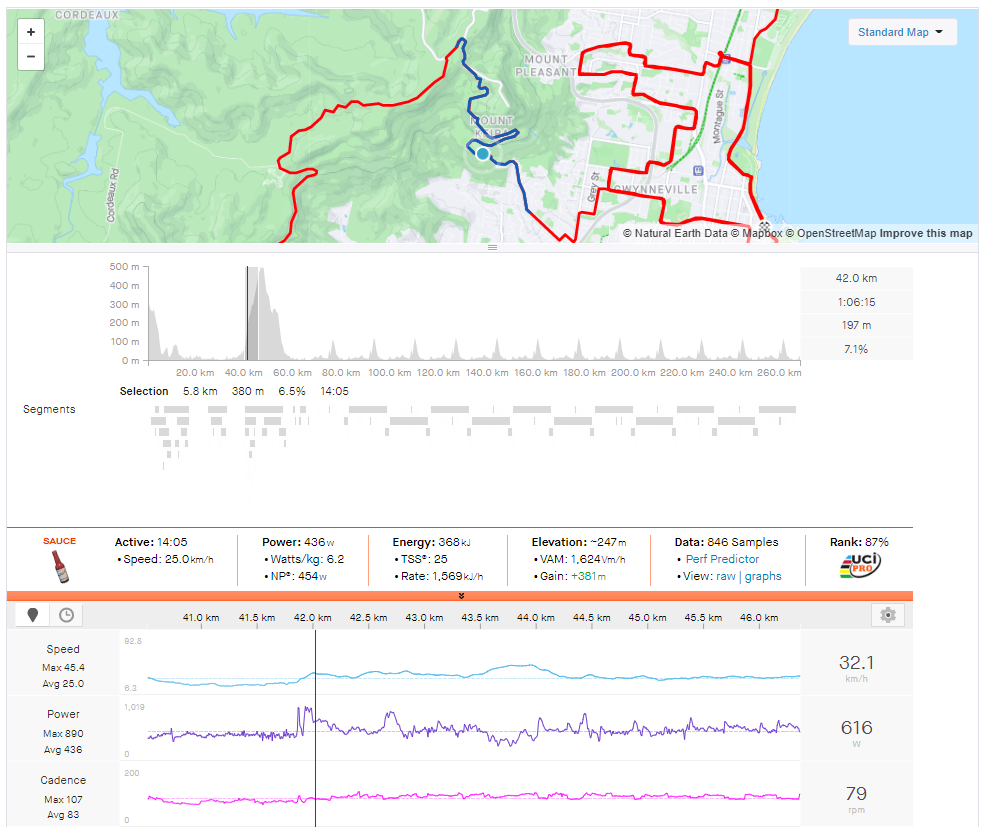
Sivakov – Mount Keira
- Time: 9:16
- Average Power: 473w (6.8w/kg)
- Peak 3-minute Power: 514w (7.3w/kg)
This attack changed how the worlds were raced. Typically, the road world championships follow a familiar script: a weak early breakaway builds a 10-15 minute lead, the peloton slowly chases them down whilst increasing the pace each hour, and then all hell breaks loose in the final 50km when the “real racing” begins.
In this year’s worlds, France demolished the peloton with over 225km to go, forcing a massive split that contained Sivakov and more than 50 other riders. While this group would be caught eventually, their time out front had taken a toll on both the breakaway riders and the chasing peloton.
With over 200km to go, Sivakov was attacking over and over, like it was the last 10km of the race. Once the pace settled, Sivakov continued for over three hours at a Normalized Power of nearly 330w.
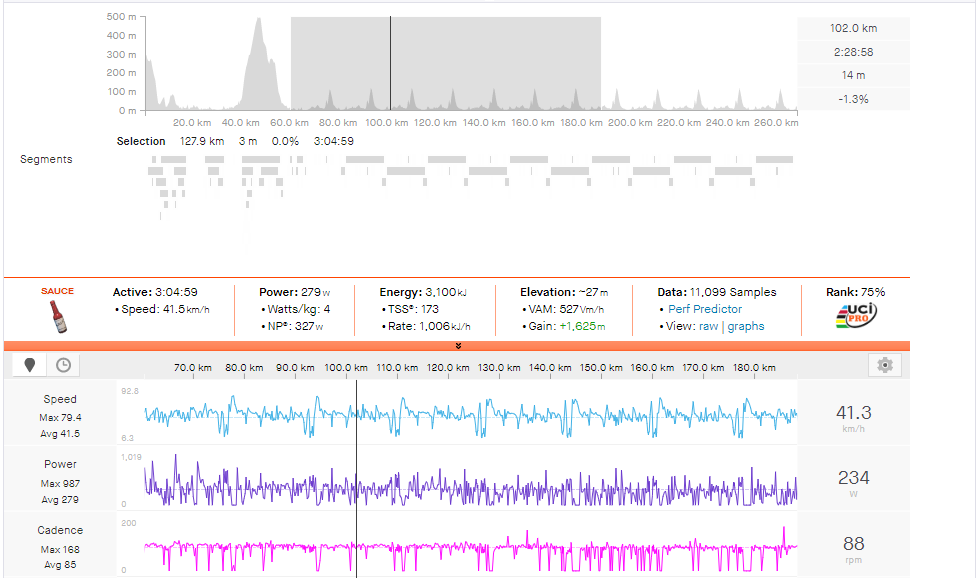
Sivakov – Driving the breakaway
- Time: 3:04:09
- Average Power: 279w (4w/kg)
- Normalized Power (NP): 327w (4.7w/kg)
- Peak 20-minute NP in the Breakaway: 394w (5.7w/kg)
The most decisive split of the race came around 75km to go when Neilson Powless from the USA made it into a front group of 20 riders that also contained Evenepoel. The 22-year-old Belgian had already won Liège-Bastogne-Liège and the Vuelta a España this season, so he was a hot favorite for the world title.
With more than five hours of racing in his legs, Powless did nearly 8w/kg for two and a half minutes on the defining feature of the Wollongong circuit: Mount Pleasant.
At 1.1km at 8.8%, Mount Pleasant is not the longest or the hardest climb in the world. But repeating it 12 times can break even the strongest riders’ legs. At its steepest, the climb hits over 13% for 200 meters.
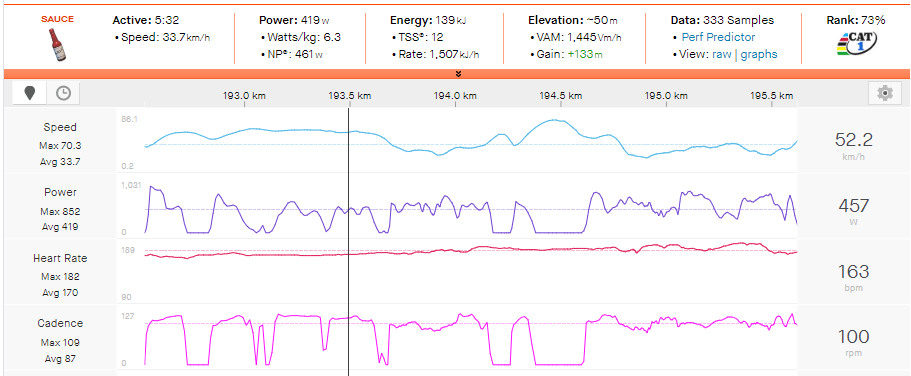
Powless – Making the split with 75km to go
- Time: 5:32
- Average Power: 419w (6.3w/kg)
- Mount Pleasant: 524w (7.9w/kg)
Powless worked with Evenepoel in the front group as their lead over the peloton grew to two minutes. With around 40km to go, Evenepoel stuck his nose at the front of the breakaway and helped push the pace on Mount Pleasant.
Powless looked to be at his limit when Evenepoel went clear of the breakaway with Alexey Lutsenko. The Kazakh lasted about 10km on the Belgian’s wheel before succumbing to the pace. And based on Powless’ power numbers, it’s hard to imagine anyone staying with Evenepoel who was already 30 seconds up the road.
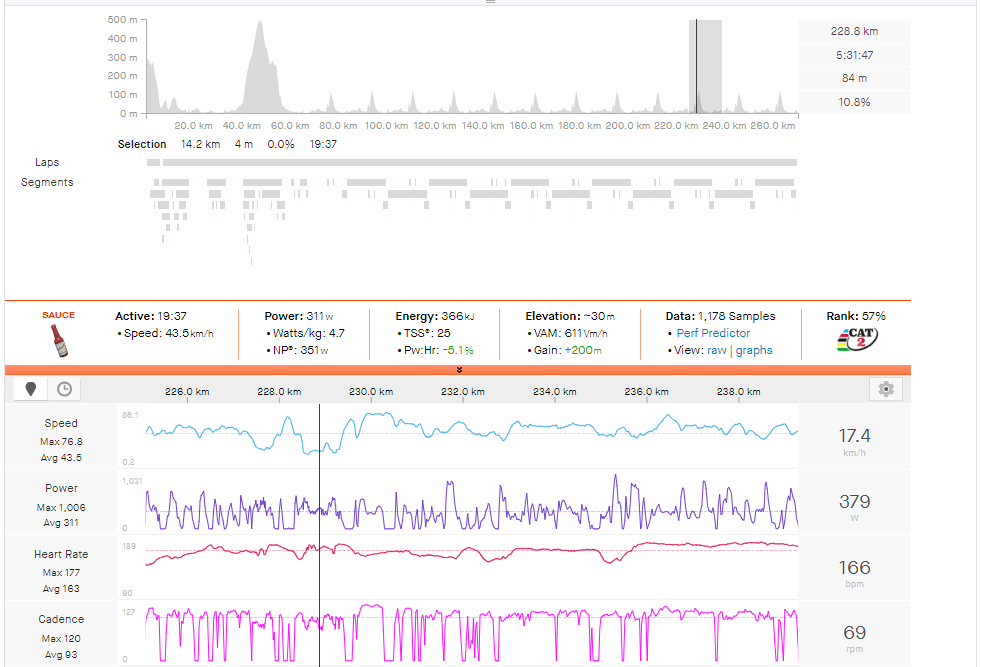
Powless – Trying to chase down Evenepoel with 35km to go
- Time: 19:37
- Average Power: 311w (4.7w/kg)
- Normalized Power: 351w (5.3w/kg)
- Mount Pleasant: 394w (6w/kg) for 2:50
While Evenepoel hasn’t posted his power data from the 2022 Road World Championships, he did post his ride file including speed and cadence data. In the last 25km, Evenepoel averaged 45.7kph (28.4mph), including sections of nearly 48kph (30mph) on the flats.
Few amateur bike racers would struggle to match Evenepoel’s speed for this one-off effort. Let alone, Evenepoel made this move after 250km and nearly six hours of racing.
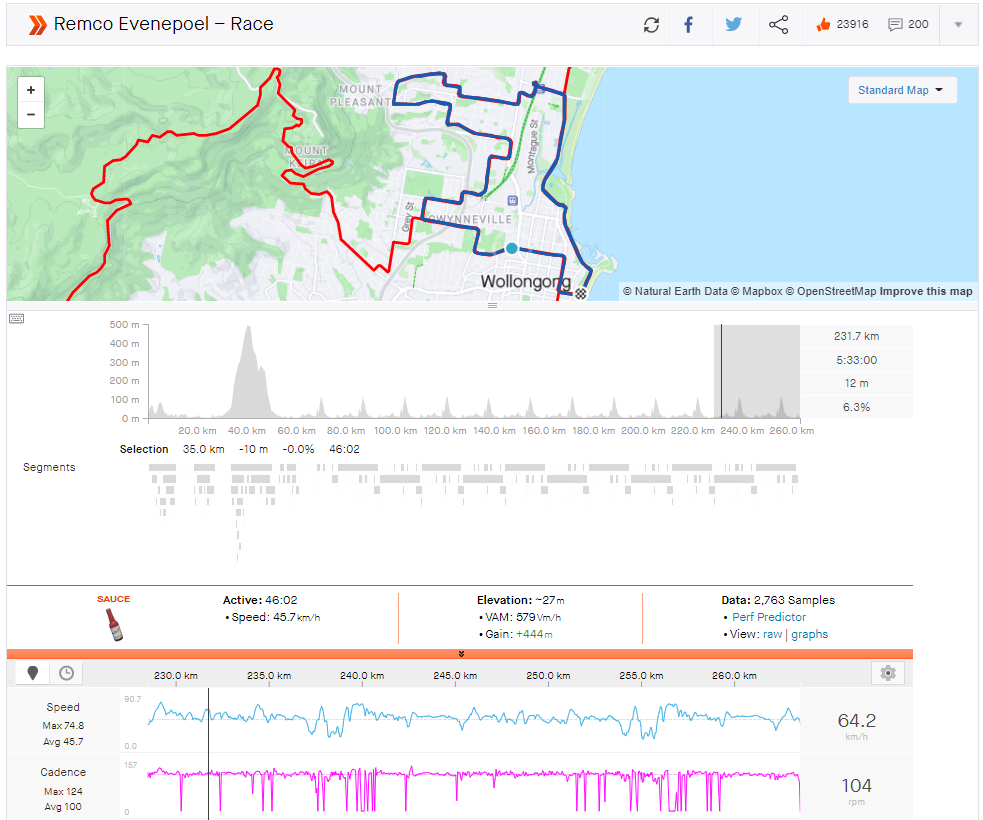
Evenepoel – 35km breakaway to win the World Championships
- Time: 46:02
- Average Speed: 45.7kph (28.4mph)
- 25km to 12km to go (flat section): 47.7kph (29.6mph)
Those who said Evenepoel would be too tired after the Vuelta to be in peak form for the world championships – it’s safe to say that they had it wrong. On Evenepoel’s day, there is no stopping the 22-year-old who just won his first grand tour and rainbow jersey in the space of two weeks.
***
Power Analysis data courtesy of Strava
Strava sauce extension
Riders: